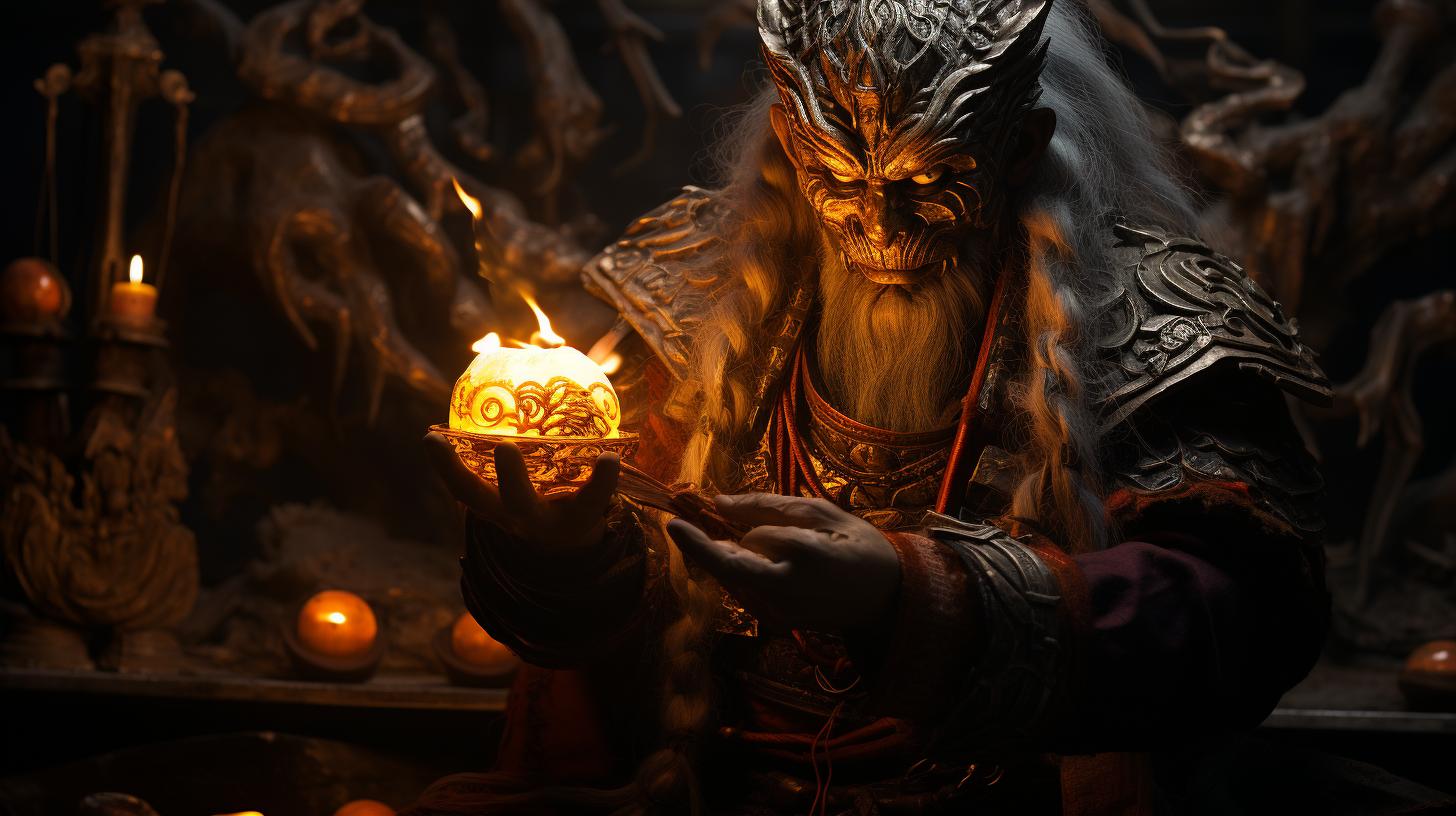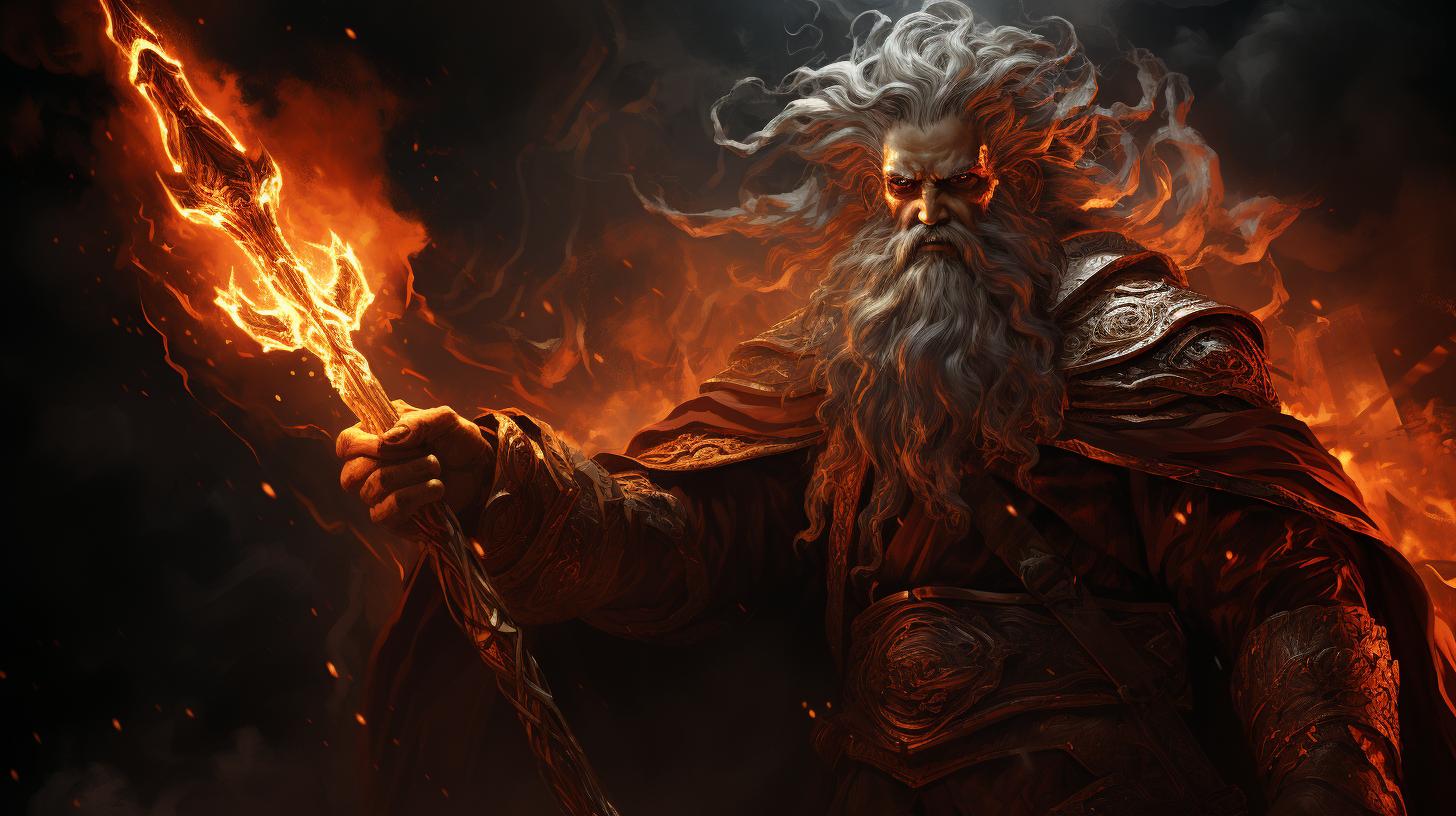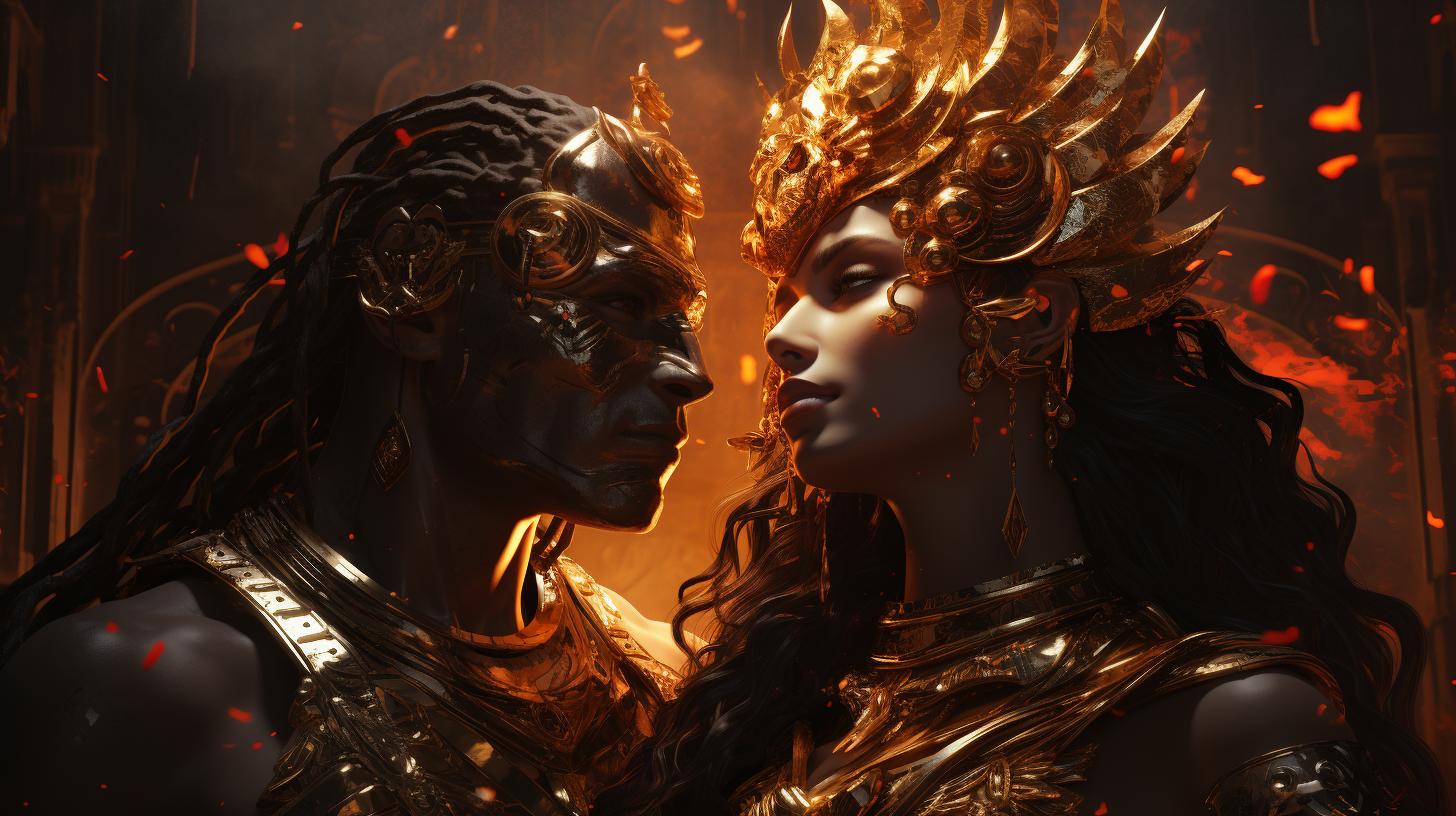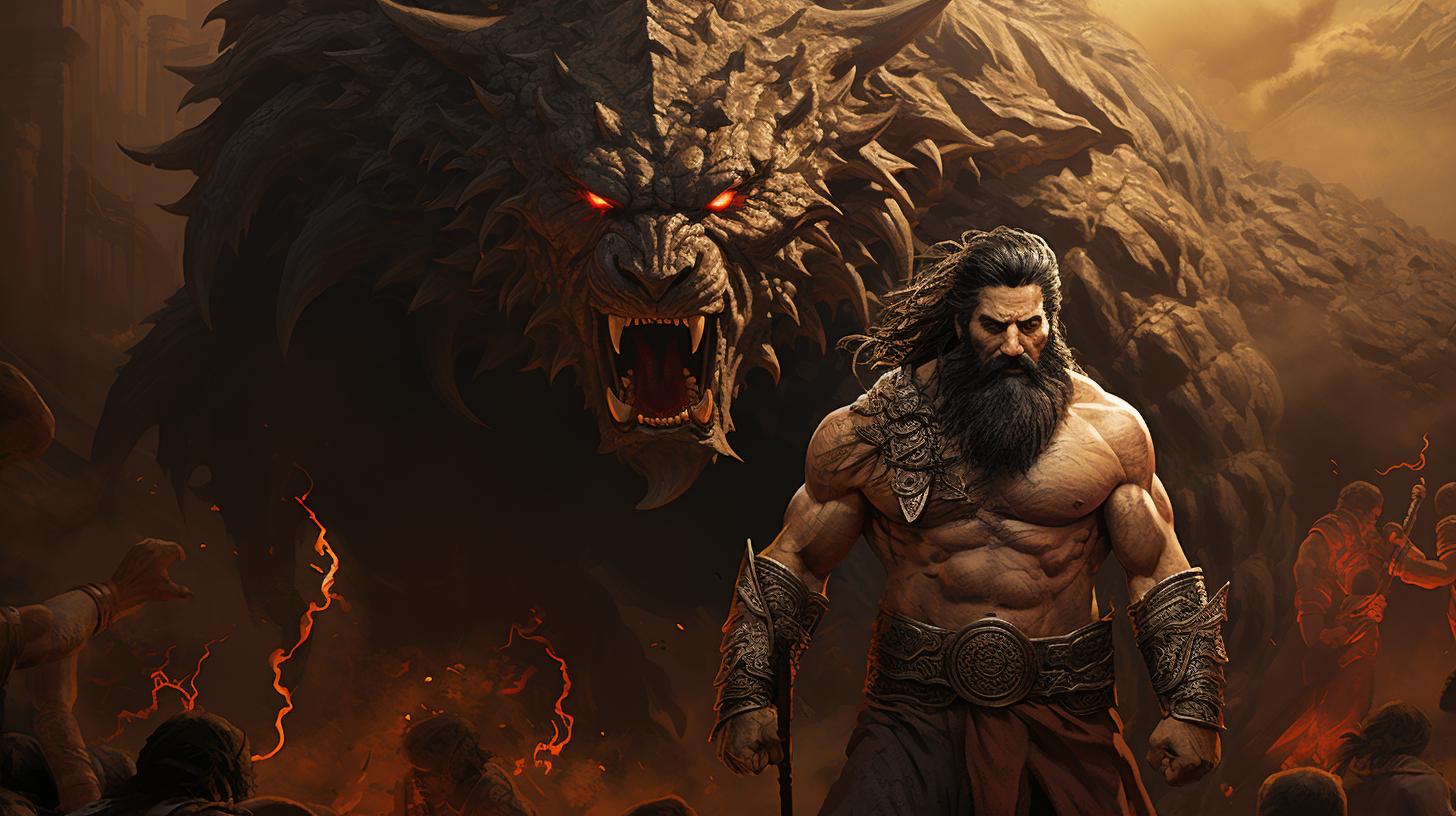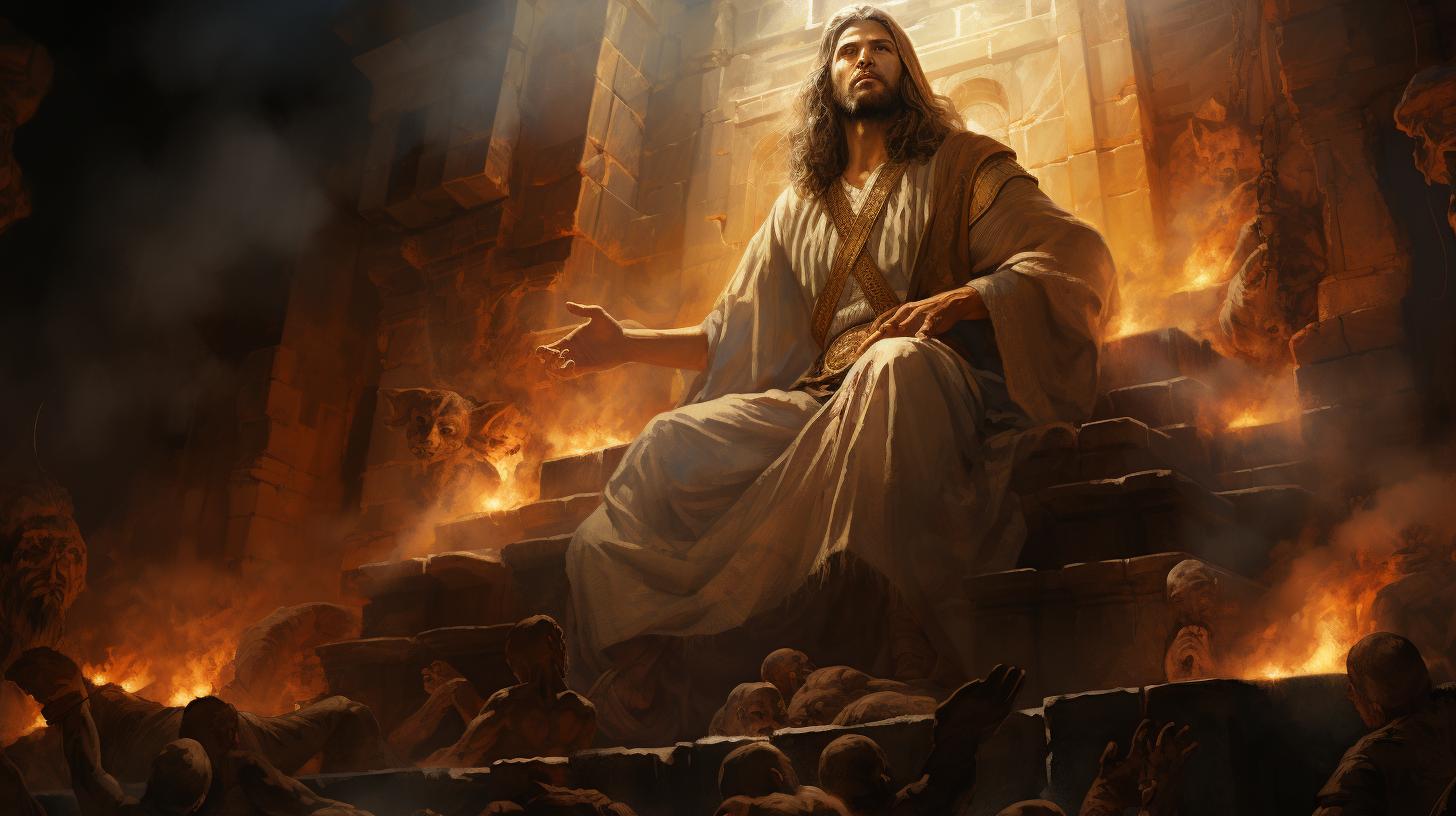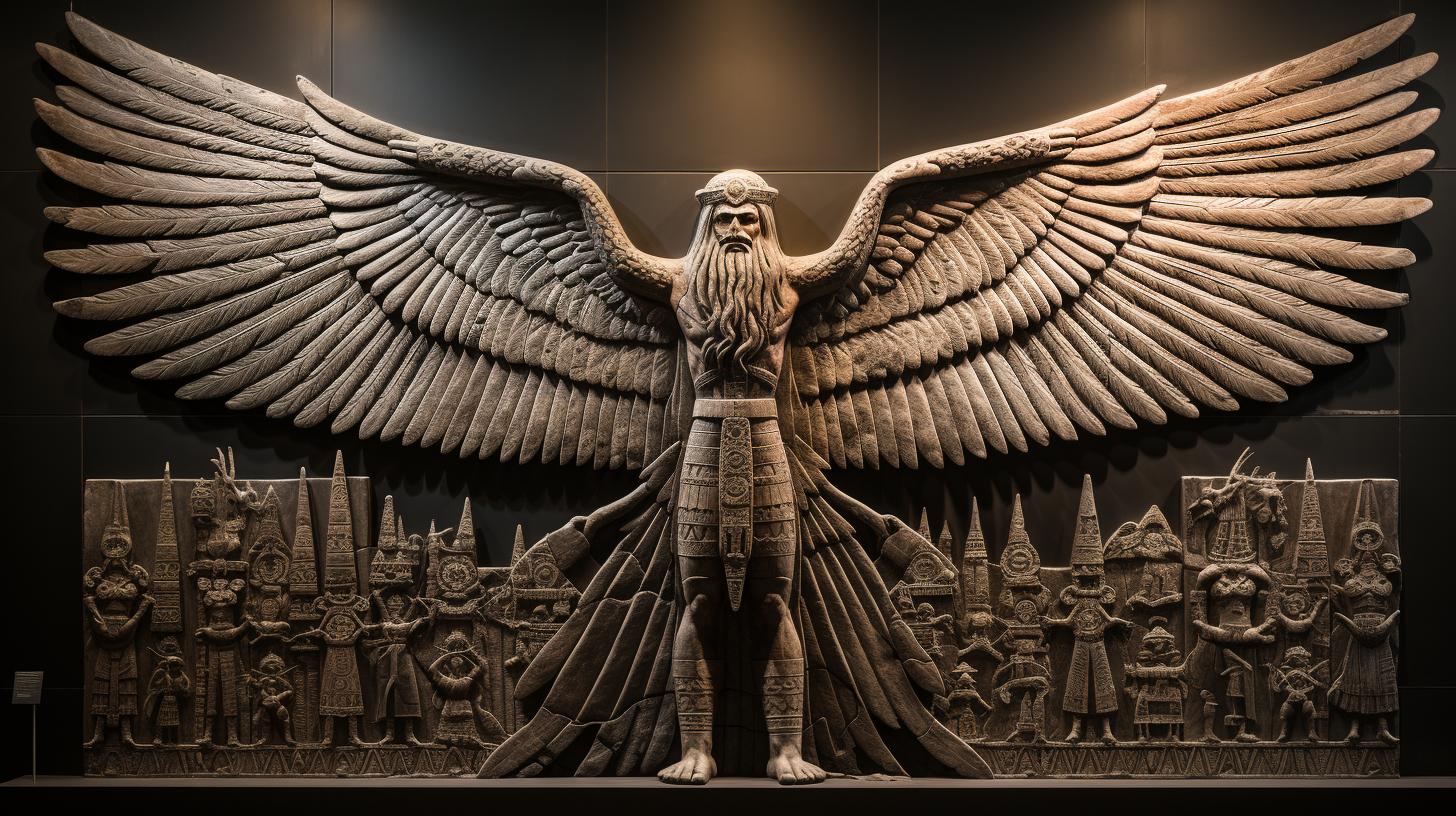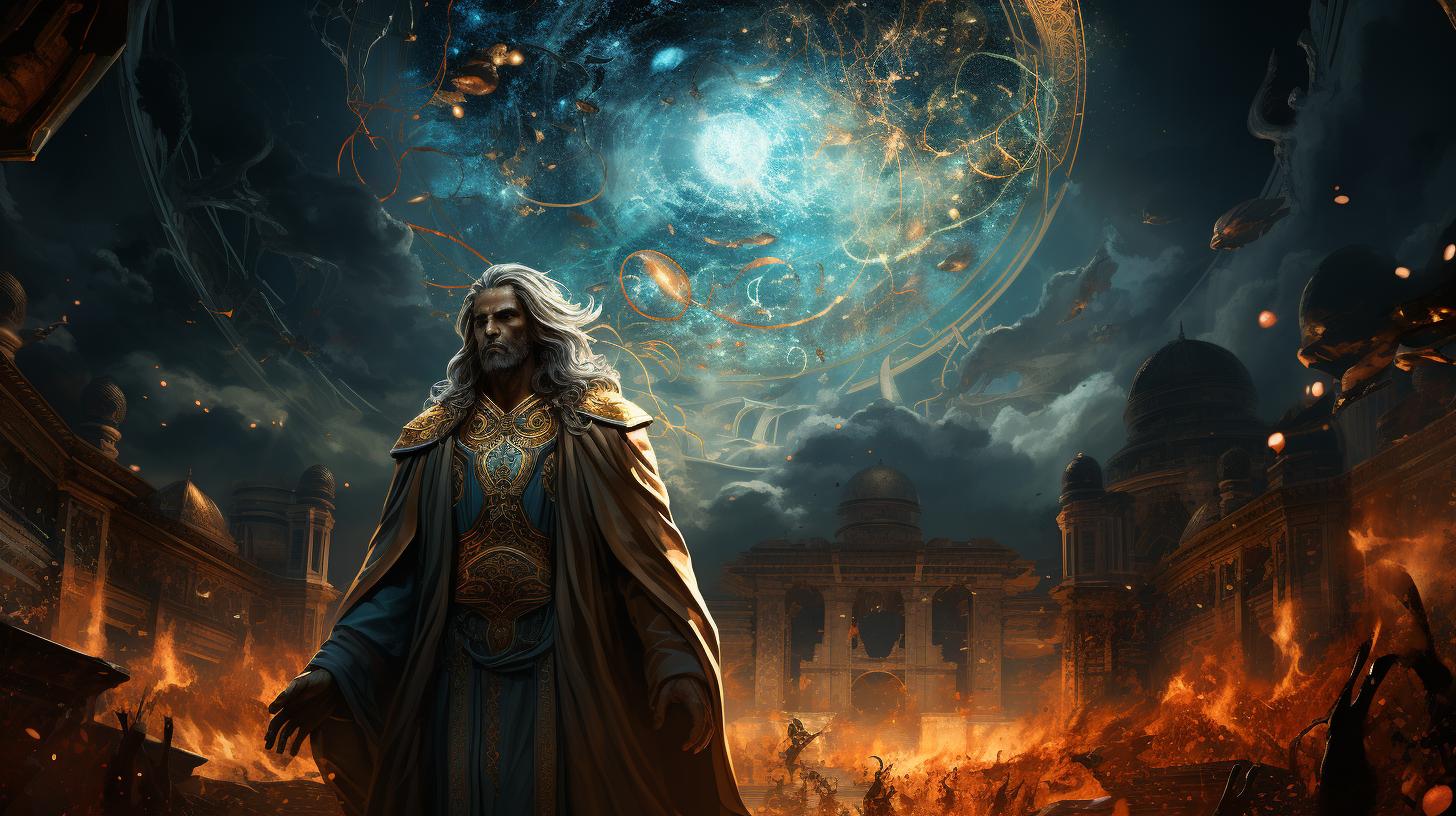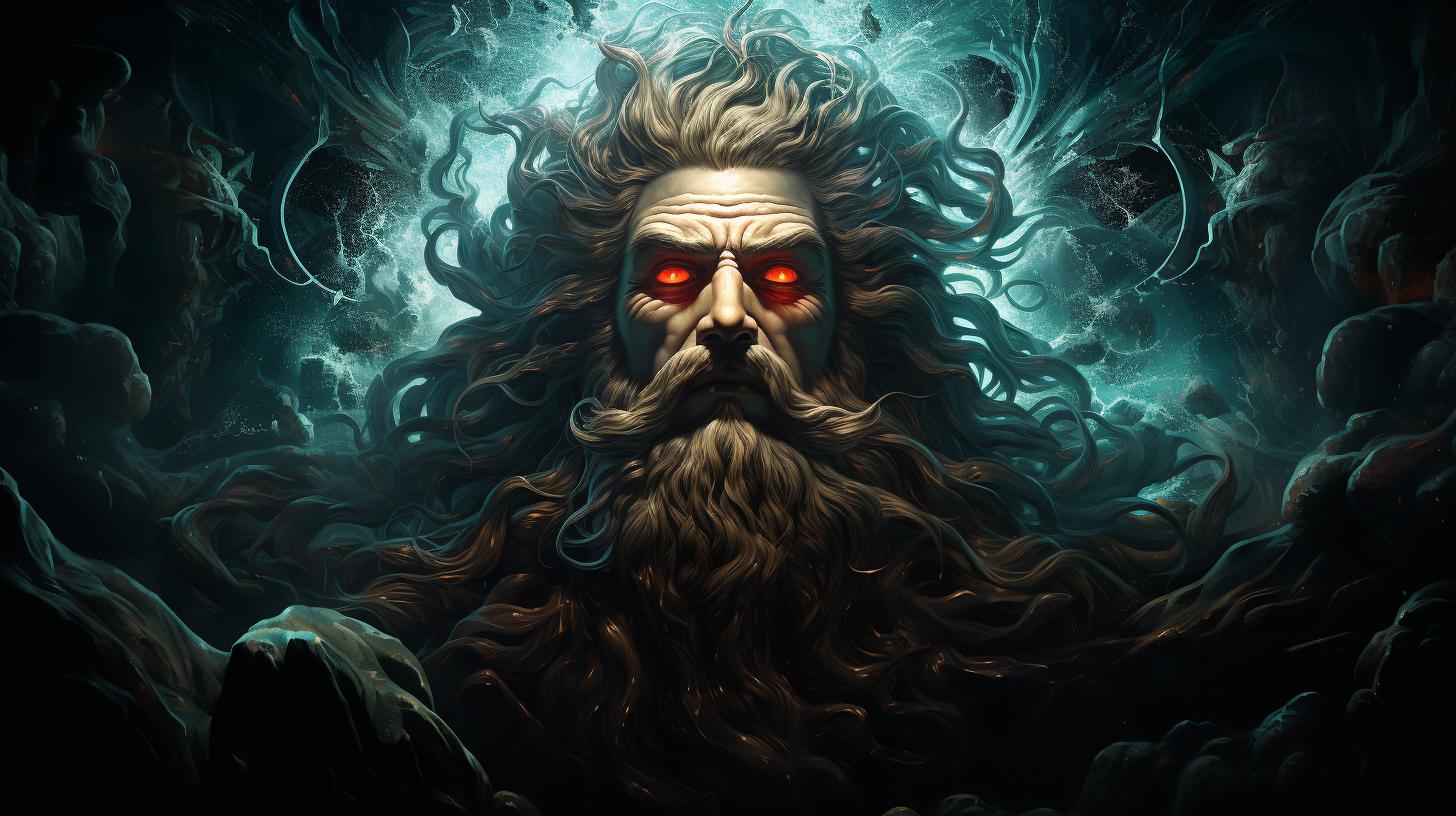Nusku God: The Ancient Mesopotamian Deity of Fire and Light
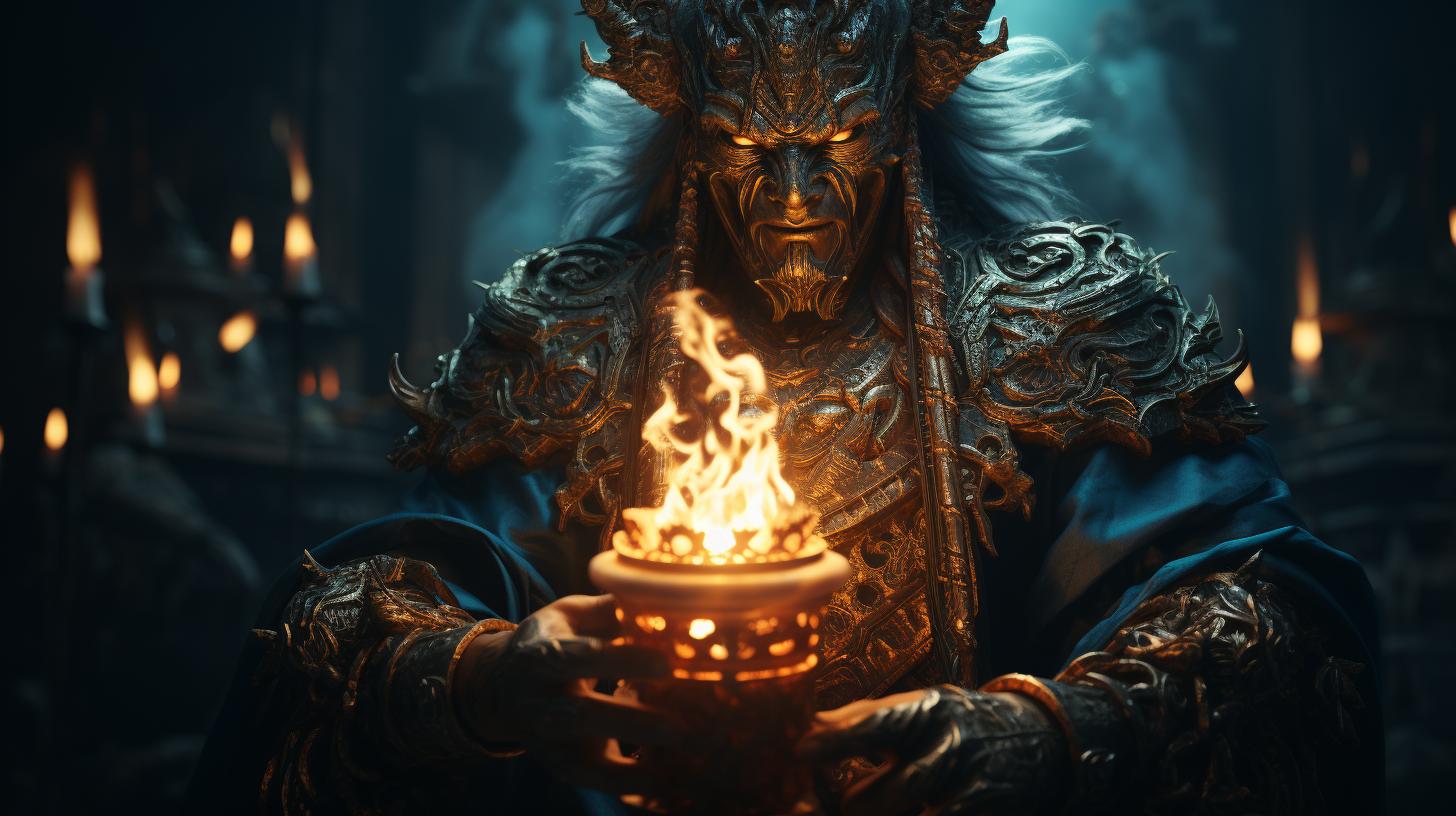
Nusku god is an ancient Mesopotamian deity associated with fire and light. As the divine vizier of Enlil, he was revered as a protective deity against demons. Worshiped in various cities including Nippur, Babylon, and Uruk, Nusku held a prominent role in Mesopotamian culture.
With symbols such as a staff, a lamp, and a rooster, Nusku’s divine lineage varied but he was sometimes considered the son of Enlil. His significance and influence extended beyond Mesopotamia, with mentions of his cult in Elam and Egypt.
Ancient texts mention Nusku as the loyal servant of Enlil, celebrated through hymns and mythological accounts.
Nusku God: Overview and Significance
The deity known as Nusku God holds great significance in ancient Mesopotamian culture. As an entity associated with fire and light, Nusku played a central role in religious beliefs and practices.
Understanding the overview and significance of Nusku God provides a deeper insight into the rich tapestry of Mesopotamian mythology.
Throughout the region, Nusku was revered as a powerful protective deity against demons.
The Mesopotamians held a deep belief in the existence of malevolent forces and invoked Nusku’s divine power for safeguarding against these supernatural threats.
Nusku God’s relevance extended beyond his protective nature.
Considered the sukkal, or divine vizier, of Enlil, Nusku served as a trusted advisor and emissary for the more powerful deity. This bestowed upon Nusku a position of respect and authority within the divine hierarchy.
The worship of Nusku God was widespread throughout Mesopotamia, with the main cult center located in Nippur. However, his influence was not limited to a single city, as he was also revered and worshipped in Babilonia, Ur, Uruk, Assur, and Harran.
In fact, during the first millennium BCE, Harran emerged as a significant center for Nusku’s cult.
It is noteworthy that Nusku’s divine lineage varies across different traditions. While some texts mention him as the offspring of Enlil, other sources suggest connections to the god of fire, Gibil, and Enlil’s courtiers such as Shuzianna and Ninimma. These diverse genealogical accounts further add to the enigmatic and multifaceted nature of Nusku God.
Not only was the veneration of Nusku limited to Mesopotamia, but his cult also extended beyond its borders. Historical records mention his worship in regions as far as Elam and even Egypt.
This demonstrates the widespread influence and recognition of Nusku God across different cultures of the ancient world.
Overall, gaining an understanding of Nusku God’s overview and significance provides a glimpse into the pivotal role he played within the intricate belief system of ancient Mesopotamia.
His association with fire, protection against demons, and his connections to Enlil and other deities highlight the intricate web of mythological relationships that shaped the cultural and religious landscape of the era.
Mythological Origins of Nusku God
The mythological origins of Nusku god provide insights into his genealogy and divine associations, as well as his connection with other prominent deities.
Genealogy and Divine Associations
Nusku god’s genealogy varies across different traditions, but in some accounts, he is mentioned as the son of Enlil, the powerful Mesopotamian god. This divine lineage highlights Nusku’s esteemed position among the deities of Mesopotamia.
Connection with Enlil and Other Deities
Nusku serves as the sukkal or divine vizier of Enlil, further emphasizing his association with this influential god. As Enlil’s loyal servant, Nusku plays a crucial role in carrying out Enlil’s will and acting as an intermediary between Enlil and the mortal realm.
Besides Enlil, Nusku god is also linked to other notable deities. One such association is with Gibil, the god of fire, indicating Nusku’s close relationship with the element of fire.
He is also associated with Enlil’s courtiers, Shuzianna and Ninimma, further showcasing his allegiance to the divine hierarchy.
This interplay of genealogy and divine associations sheds light on Nusku god’s significance within the Mesopotamian pantheon and his role as a central figure in religious rituals and mythological narratives.
Nusku God in Mesopotamian Culture
Nusku god held a significant role in Mesopotamian culture, where he was widely worshipped and revered. His presence extended to various aspects of religious practices, offering protection against malevolent forces, and embodying the divine power of fire and light.
Understanding the worship and cult centers, his protective role against demons, and the symbols and representations associated with Nusku god provides insight into his significance in Mesopotamian society.
Worship and Cult Centers
Nusku god was venerated in several prominent cult centers throughout Mesopotamia, where devotees offered prayers and performed rituals in his honor. The main center of his worship was located in Nippur, a city of great religious importance.
However, Nusku god’s influence spread to other cities, including Babylon, Ur, Uruk, Assur, and Harran, where he garnered considerable devotion.
Protective Role against Demons
As a deity associated with fire and light, Nusku god assumed the role of a protective guardian against demons and evil forces. His worshippers sought his assistance in warding off malign entities and ensuring their safety and well-being.
Through invocations and offerings, they sought Nusku god’s divine intervention as a shield against malevolent influences and supernatural harm.
Symbols and Representations
Nusku god was commonly depicted with symbolic attributes that represented his essence and association with fire and light. His primary symbols included a staff, a lamp, and a rooster. The staff symbolized his divine authority, while the lamp represented the light he embodied, both literally and metaphorically.
The rooster, known for its vigilance and loud crowing at dawn, symbolized Nusku god’s protective role, guarding against malevolent forces during the night.
Nusku God in Ancient Texts
In the rich tapestry of Mesopotamian literature, Nusku god is prominently featured in various ancient texts, shedding light on his role and significance in the pantheon. These texts provide glimpses into the worship practices, myths, and hymns dedicated to this revered deity.
Attestations in Sumerian and Babylonian Texts
- One of the earliest attestations of Nusku god can be found in Sumerian texts from the Early Dynastic IIIa period.
- Scriptures from the Old Babylonian period also reference Nusku, highlighting his enduring presence in Mesopotamian culture.
- In these texts, Nusku is often invoked as a protective deity and supplications are made to him for various purposes.
Nusku’s Role in Myths and Hymns
Beyond his protective nature, Nusku god plays an important role in Mesopotamian mythology and is celebrated through hymns that extol his virtues and divine attributes.
- Some mythological accounts depict Nusku as the faithful servant of Enlil, carrying out his divine commands with unwavering loyalty.
- Hymns dedicated to Nusku emphasize his association with fire and light, highlighting his role as a bringer of illumination and warmth.
- These hymns also praise Nusku for his supernatural powers and his ability to safeguard devotees from evil forces.
The ancient texts provide a deeper understanding of Nusku god’s role in Mesopotamian society and his significance within the larger religious framework.
They showcase his presence in daily life, his connection to other deities, and his revered position as a protector against malevolent forces.
Nusku God Beyond Mesopotamia
In addition to his prominence in Mesopotamia, Nusku god’s influence extended beyond the borders of this ancient civilization. References to Nusku have been found in the historical records of Elam and Egypt, indicating his presence in these regions as well.
References in Elam and Egypt
Elam, an ancient civilization located in what is modern-day Iran, documented interactions with Nusku god. Inscriptions and artifacts uncovered in Elamite temples have revealed the existence of a cult dedicated to Nusku.
These findings highlight the cross-cultural connections and exchange of religious beliefs between Mesopotamia and Elam.
Egypt, a flourishing civilization along the Nile River, also acknowledged the presence of Nusku god. Egyptian texts make references to Nusku as a deity of fire and light, associating him with similar attributes as their own divine figures.
This suggests a potential cross-cultural influence and assimilation of Nusku into the Egyptian pantheon.
Influence and Presence in Other Cultures
Beyond Elam and Egypt, Nusku god’s presence and influence can be traced to various other cultures. While direct evidence might be scarce or fragmented, depictions and references to similar deities resembling Nusku have been found in ancient Anatolia, Syria, and Canaan.
These connections demonstrate the diffusion of religious ideas and the enduring impact of Nusku’s worship.
Anatolia:
Artifacts discovered in Anatolian sites indicate the existence of a parallel deity to Nusku, often associated with fire and light.
Syria:
Syrian texts make mention of an entity similar to Nusku, highlighting the cross-pollination of religious beliefs between Mesopotamia and Syria.
Canaan:
Canaanite inscriptions and rituals reveal the veneration of a fire deity reminiscent of Nusku, suggesting cultural interactions and influences.
These instances support the notion that Nusku god’s divinity transcended geographical boundaries, indicating a widespread recognition and assimilation of his symbolism and attributes into various cultures beyond Mesopotamia.
.











